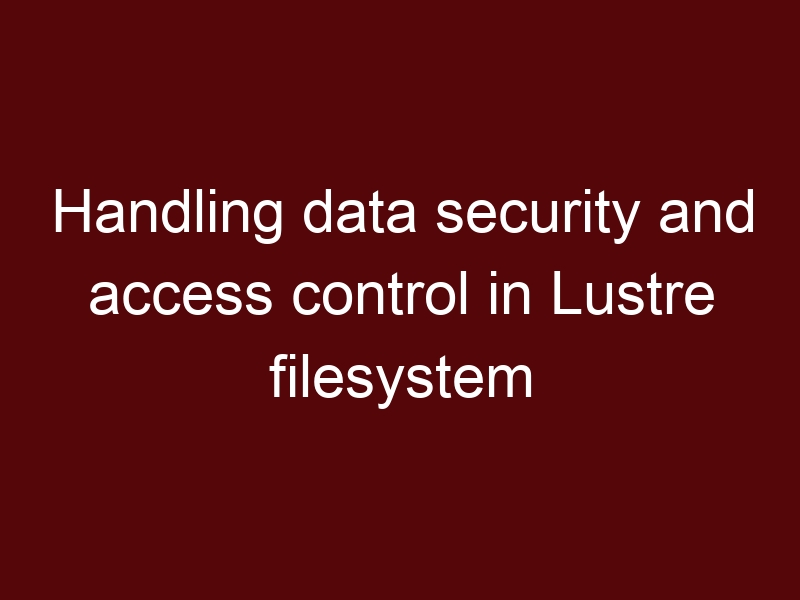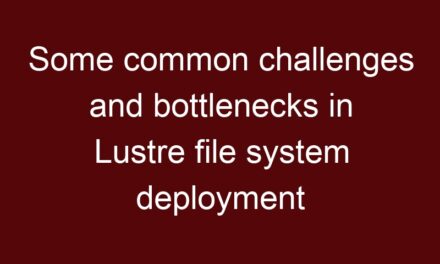Lustre provides data security and access control features to ensure that data is protected from unauthorized access and modifications. It employs a combination of authentication, access control lists (ACLs), and Lustre-specific mechanisms to manage data security. Here’s how Lustre handles data security and access control:
- Authentication: Lustre leverages the underlying authentication mechanisms provided by the operating system and the network infrastructure. User authentication is typically managed by the system’s central authentication service (e.g., LDAP, Active Directory, Kerberos). Lustre relies on these authentication services to identify users and determine their access rights.
- Access Control Lists (ACLs): Lustre supports POSIX-compliant access control lists (ACLs) to define fine-grained permissions for files and directories. ACLs enable administrators to set read, write, and execute permissions for individual users and groups, providing flexible and granular access control.
- Kerberos Integration: Lustre can be integrated with Kerberos for secure authentication and Single Sign-On (SSO) capabilities. Kerberos ensures strong mutual authentication between clients and servers, enhancing the security of data transfers and user access.
- Network Security: Lustre can utilize network encryption (e.g., IPsec) to protect data in transit over the network. Encrypting data ensures that it remains confidential and safe from eavesdropping or unauthorized interception.
- Lustre Security Modules (LSM): Lustre supports Security Modules (LSM), which are pluggable modules that can extend Lustre’s security capabilities. LSMs enable administrators to implement custom security mechanisms or integrate with third-party security solutions.
- Data Encryption at Rest: For additional data protection, administrators can implement disk-level encryption on OSTs. Disk encryption ensures that data remains encrypted when stored on disk, guarding against unauthorized access in case of physical theft or tampering.
- Firewalls and Network Segmentation: Administrators can use firewalls and network segmentation to restrict network access to Lustre servers and clients, preventing unauthorized access from external sources.
- Network File System (NFS) Security: Lustre can be accessed via NFS using the NFS Gateway. When using NFS, standard NFS security mechanisms, such as NFSv4 Kerberos support, can be leveraged to ensure secure access to Lustre via NFS.
- Data Integrity: Lustre provides data integrity checks using checksums or similar mechanisms to detect data corruption or bit flips. Ensuring data integrity is essential for maintaining data security and avoiding data loss due to data corruption.
By implementing these security measures and leveraging existing security infrastructure, Lustre ensures that data is secure, protected, and accessible only to authorized users and processes. Properly configuring access control and authentication mechanisms helps maintain data confidentiality, integrity, and availability in Lustre file systems.





